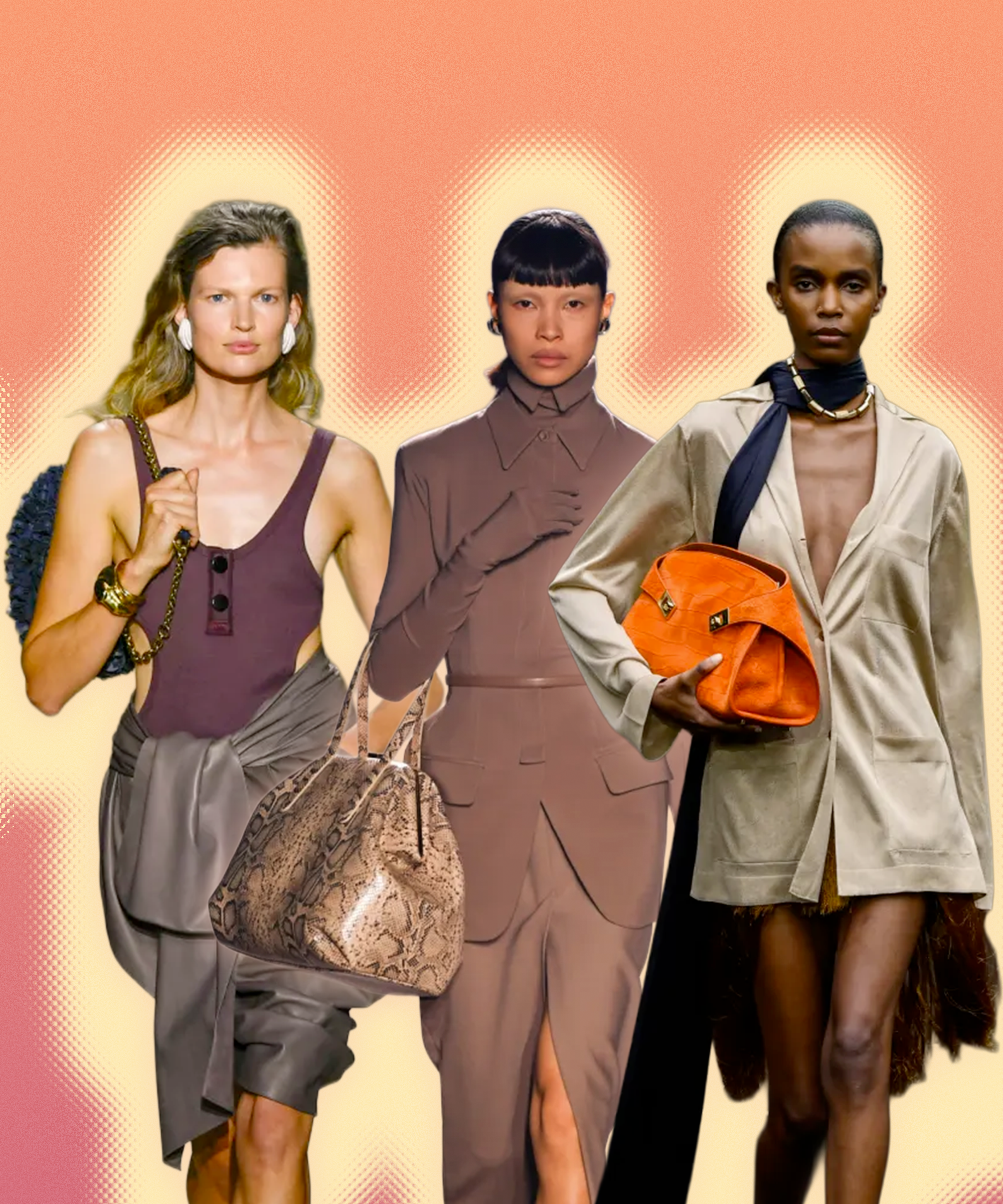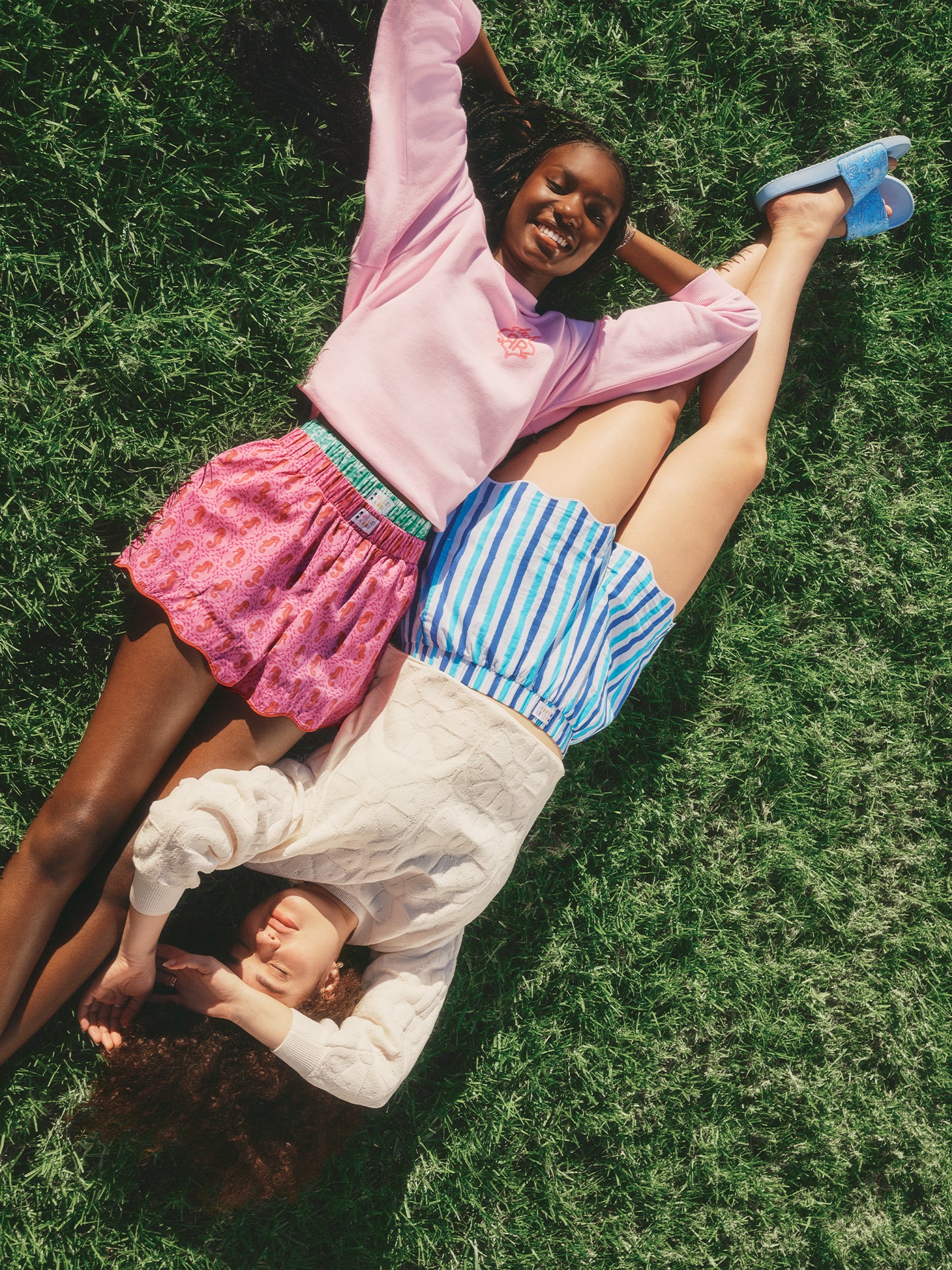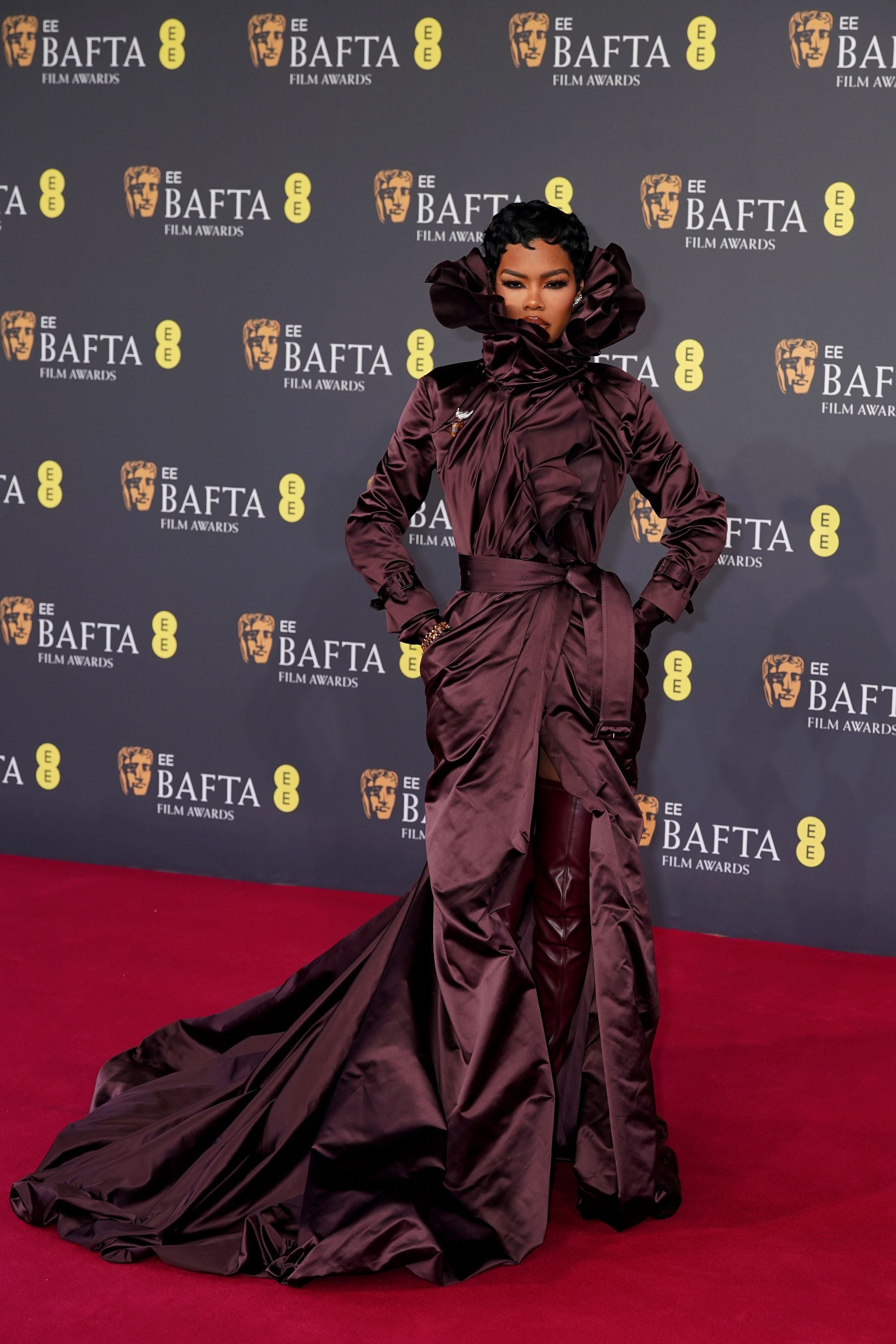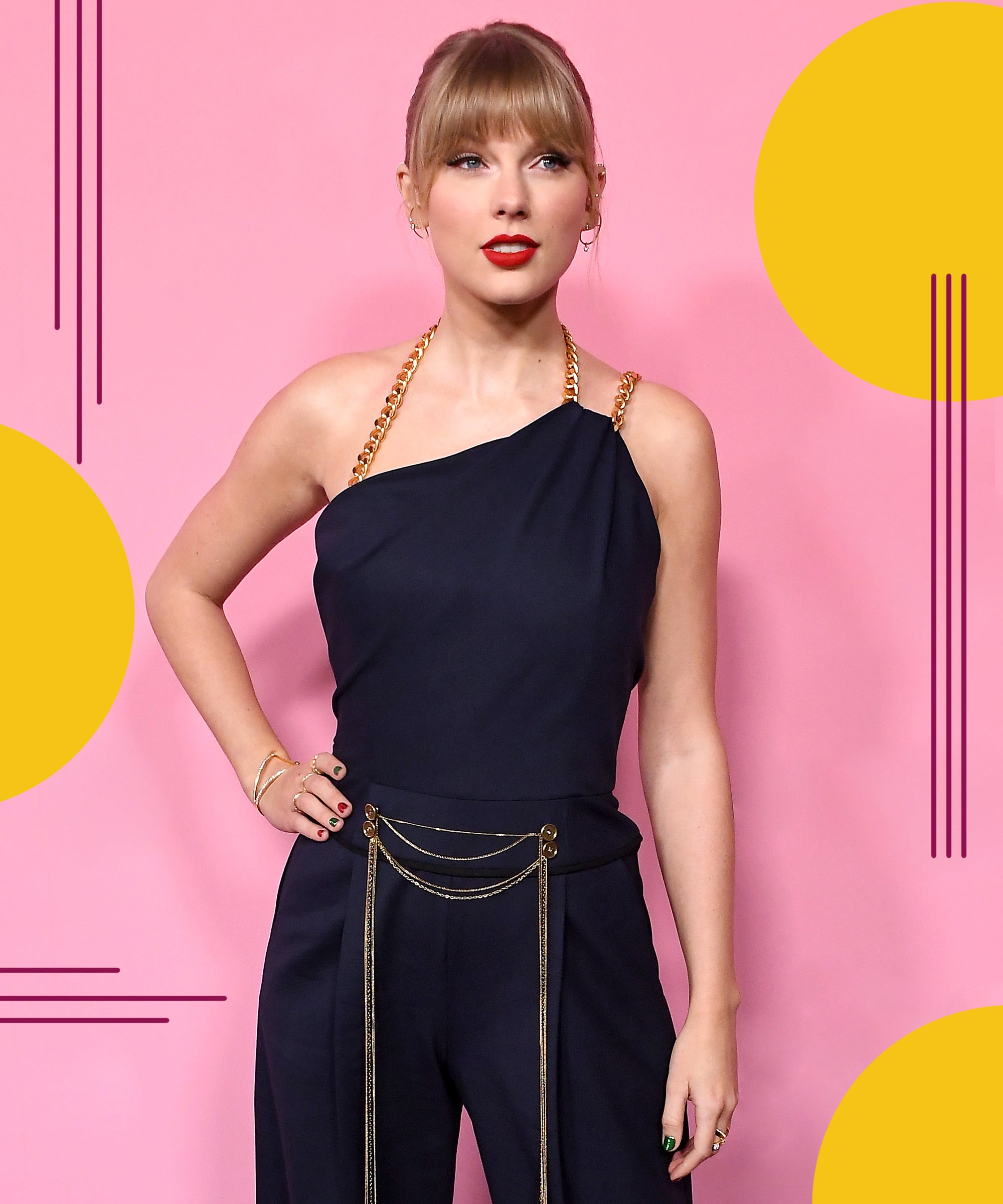
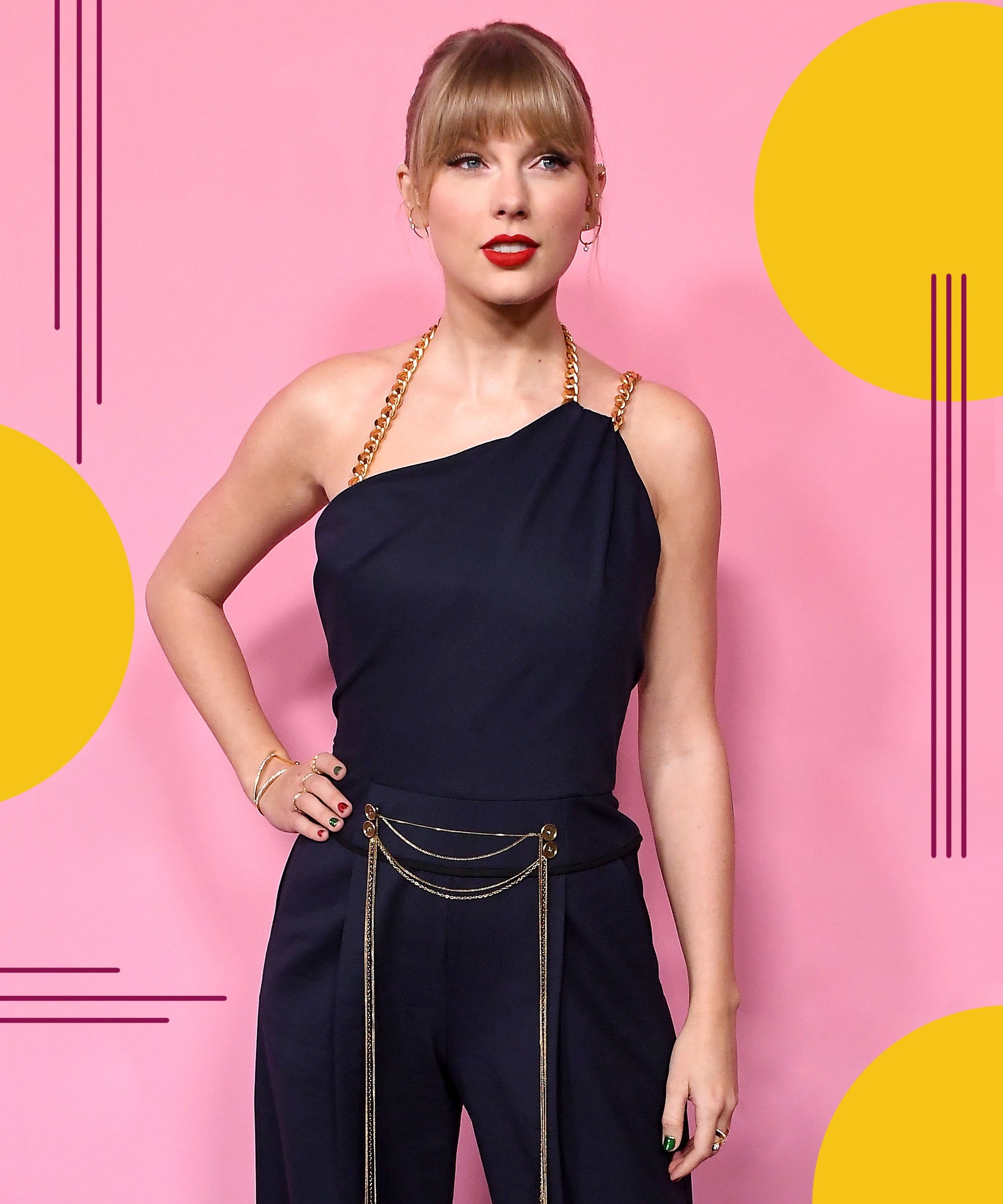
Late last year, ahead of Greta Gerwig’s remake of Little Women, I called the film’s wardrobe — an amalgamation of prairie dresses, basket bags, lace-up boots, waistcoats, and more created by Oscar-winning costume designer Jacqueline Durran — a major component in the “larger 1860-turned-2019-2020 zeitgeist.” Little did I know then that contemporary prairie aesthetic story was only just getting started.
Taylor Swift’s new album folklore — as shown in all 12 of the Instagram posts that preluded her big reveal, as well as the three that she’s posted since dropping folklore on Friday morning — might just propel the prairie aesthetic into peak popularity.
The first nine photos that Swift posted on Thursday combine on her grid to create an image of the 10-time Grammy winner standing alone at the edge of the woods wearing a long, double-breasted plaid coat (a big fall 2020 trend) over what appears to be a white prairie dress. It was her 10th post that included the big announcement, followed by the album artwork for what will presumably be folklore’s standard edition: Swift, turned away from the camera, wearing a slouchy, flannel-lined denim jacket slumped around her arms, braided buns à la the beloved American Girl doll Kirsten, and an ethereal white, lace frock.
According to Swift, she styled the entire shoot herself, even going as far as to do her own hair and makeup. Welcome to 2020.
To add to the aesthetic, Swift’s primary single is called “Cardigan,” and the music video for it starts out with the singer sitting at a vintage piano in a cozy cabin in the woods. She is wearing a nightgown-like dress. After climbing into that same piano, Swift is magically transported to a moss-covered forest, where she is then seen acting out a scene that looks like it’s straight out of Maria Grazia Chiuri’s virtual couture show for Dior, minus the satyrs. (Given the close timing of both, this couldn’t have been intentional on Swift’s part, but the similarities are uncanny.)
“And when I felt like I was an old cardigan, under someone’s bed. You put me on and said I was your favorite,” she sings at a new piano, one that this time has a dreamy waterfall feature.
To coincide with the release, she’s selling a replica of the cardigan seen in the video — a cream-colored cable knit style, with silver, embroidered stars on both of the sleeve’s chunky elbows and navy blue piping and buttons — on her website. On the front is a patch that reads: the folklore album.
Since the album’s late-night release, fans on Twitter have had a lot of theories about what Swift was saying with her lyrics and visuals. Caroline Calloway, a tried-and-true T.Swift fan, tweeted that Swift must have been inspired after discovering lesbian cottagecore on TikTok during quarantine. (Upon further investigation, it was revealed that folklore’s similarity to lesbian cottagecore was actually a realization conceptualized by New York Magazine writer Madison Malone Kirscher, not Calloway. But that’s some tea for another day.)
Cottagecore, for those of you who aren’t familiar, is Gen Z’s foray into pastoral life. Ironically, it lives on the Internet, or rather on TikTok, where those who were born after ‘95 frolic in delicate floral bandanas, ruffled dresses (not unlike those worn in Little Women), and open-knit shawls. More than clothes, cottagecore is about a return to simpler times, when baking, adventuring in nature, and making art were the norm, rather than something somewhat forced upon us by a pandemic. An 18-year-old quoted in a feature on cottagecore in The New York Times likened the aesthetic to living in a real-life Animal Crossing: New Horizons.
Lesbian cottagecore is a subsect of the cottagecore aesthetic that acts as a safe space for queer women who want to: (1) escape from being oversexualized by the media, according to Vice, and (2) reclaim the simplicity of life in rural areas, where conservative politics often exclude queer people and makes them feel unwelcome and/or unsafe.
The escapism of cottagecore is one of the reasons why we loved the Little Women remake so much — Jo, Beth, Amy, and Meg still face troubles that exist for women today, but they do so in a more straightforward way that isn’t derailed by technology. Swift must have felt a similar nostalgia for simpler times during isolation.
In yet another Instagram post from the singer, where she can be seen wearing a plaid tank top dress and her braided buns, Swift wrote this about her time in quarantine: “In isolation my imagination has run wild and this album is the result, a collection of songs and stories that flowed like a stream of consciousness. Picking up a pen was my way of escaping into fantasy, history, and memory. I’ve told these stories to the best of my ability with all the love, wonder, and whimsy they deserve. Now it’s up to you to pass them down. folklore is out now.”
With this new album, Swift is going back to her roots, leaving the bubblegum pop style of Lover and the anger of Reputation behind, and moving back toward the acoustic, country-turned-folk music genre that gave her a platform to develop her music in the first place. Like Little Women, which resonated with women at the time of its release, Swift’s return to her truest self — both musically and stylistically — in folklore is a sign of the times. Ones filled with prairies dresses and a merch cardigan.
Like what you see? How about some more R29 goodness, right here?
Is Taylor Swift’s Folklore About A Break-Up?


